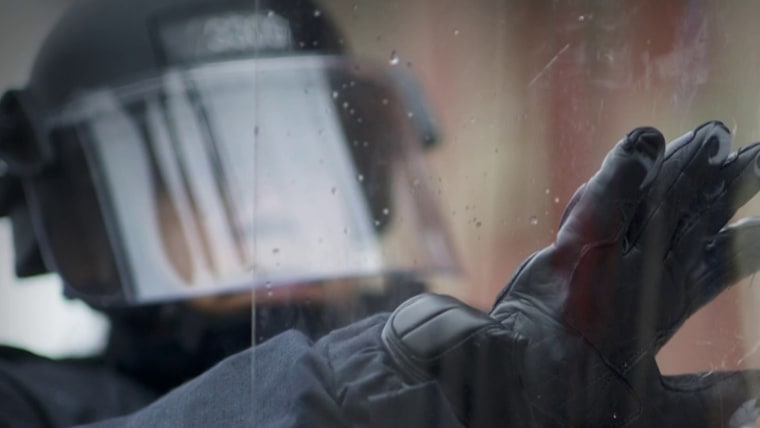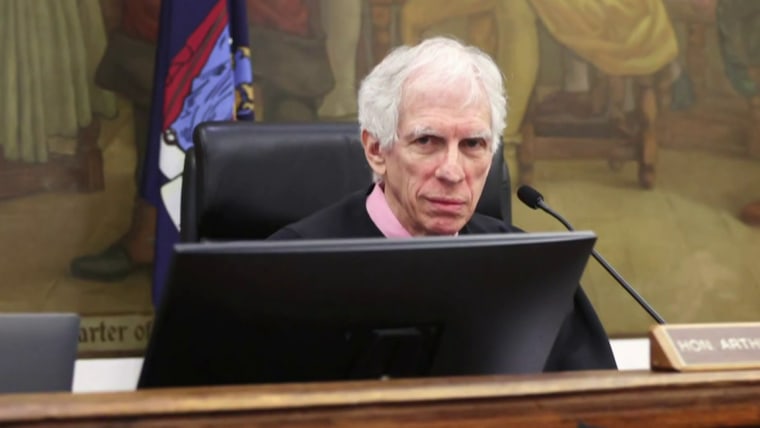Hours before closing arguments were set to begin in former President Donald Trump’s civil fraud case on Thursday, someone called in a bomb threat at the home of the judge presiding over the case, Judge Arthur Engoron. That came just days after Judge Tanya Chutkan, who is presiding over Trump’s election interference case, was targeted in a “swatting” call, which is when police are dispatched to a home based on a false report of a shooting or threatening situation. And that incident came two weeks after special counsel Jack Smith, who filed the election interference indictment against Trump, was swatted as well.
Death threats, bomb threats and swatting should not be seen as edgy pranksterism, but as tools for undermining America’s political system.
These incidents, all of which targeted officials who Trump has slammed on social media, threaten the proper functioning of the legal system in alarming ways. And these incidents are just the latest examples of a new surge of threats and intimidation tactics directed at politicians and judges, many of whom are Trump critics. Trump recently threatened that there will be “bedlam in the country” if criminal charges cause him to lose the presidential election. The targeting of Trump’s designated enemies are signs of it bubbling up already.
A recent Washington Post report details the uptick in threats, which have been directed at members of Congress, state officials, judges and local leaders in recent weeks. Rusty Bowers, the former speaker of the Arizona House of Representatives who resisted Trump’s attempts to overturn the 2020 election, was swatted in December. The Maine secretary of state and the Colorado Supreme Court have received a deluge of threats after determining that Trump was ineligible to run for president in their states. Last week, a bomb threat was sent to 19 state capitols, many of which were forced to evacuate personnel. On Wednesday, federal authorities arrested a man who threatened to kill Rep. Eric Swalwell and his family. Some on the right have been targeted as well — Rep. Marjorie Taylor Greene was swatted in December — but experts say most of the threats come from right-wingers and, as the Post points out, “Many targets share a common attribute: They have done or said something that has earned Trump’s ire.”

Death threats, bomb threats and swatting should not be seen as edgy pranksterism, but as tools for undermining America’s political and legal systems. Threats and harassment are in and of themselves consequential. They can cause people extreme distress and compel them to change their behavior in order to discourage further intrusions or avoid possible future violence. They disrupt business and domestic life, and soak up police resources. In the case of swatting in particular, the intimidation tactic is openly dangerous: swatting incidents — which can involve heavily armed police raiding a home — have resulted in injuries and deaths. Since it is impossible to determine at first whether a threat is credible or not, they can be a potent weapon in psychological warfare.
As the Post points out in its analysis, threats don’t have to be acted upon to erode democracy. The very knowledge that one’s life or family could be harmed can be enough to alter officials’ behavior not just in private ways — say, buying a home alarm system and surveillance cameras — but in their public duties. Consider reports that even within Trump’s own party fear of possible violence has been politically consequential — some Republican lawmakers were reportedly reluctant to vote to impeach or convict Trump after the Jan. 6 insurrection because they feared for their families. Once a general climate of fear of harassment and violence has developed, it can alter people’s behavior before they’re even targeted. Worryingly, it seems impossible to measure how much a general climate of harassment affects political behavior — all we know is that many political officials are seeing decisions that could infuriate right-wing activists as more costly than before.
Crucially, the most influential right-wing figure in America is encouraging this kind of behavior. Throughout his political career, Trump has encouraged political violence — against counterprotesters, against the media, against Black Lives Matter protesters and, of course, on Jan. 6, 2021. Now he’s promising “bedlam” if he doesn’t get his way in the 2024 elections. That kind of rhetoric matters. As Lilliana Mason, a political scientist at Johns Hopkins University, told me in an interview in 2021, “The fact that almost the entire Republican Party is not upholding that anti-violence norm — and this isn’t in the leadership of the party — sends a message to their constituents that this is not an important norm to follow. And that’s not going to make every one of them go out and be violent, but it might change the social dynamic in the social network of a person who is generally more inclined toward violence.” Unfortunately, Trump is leveraging that dynamic as a source of strength approaching the 2024 election.

